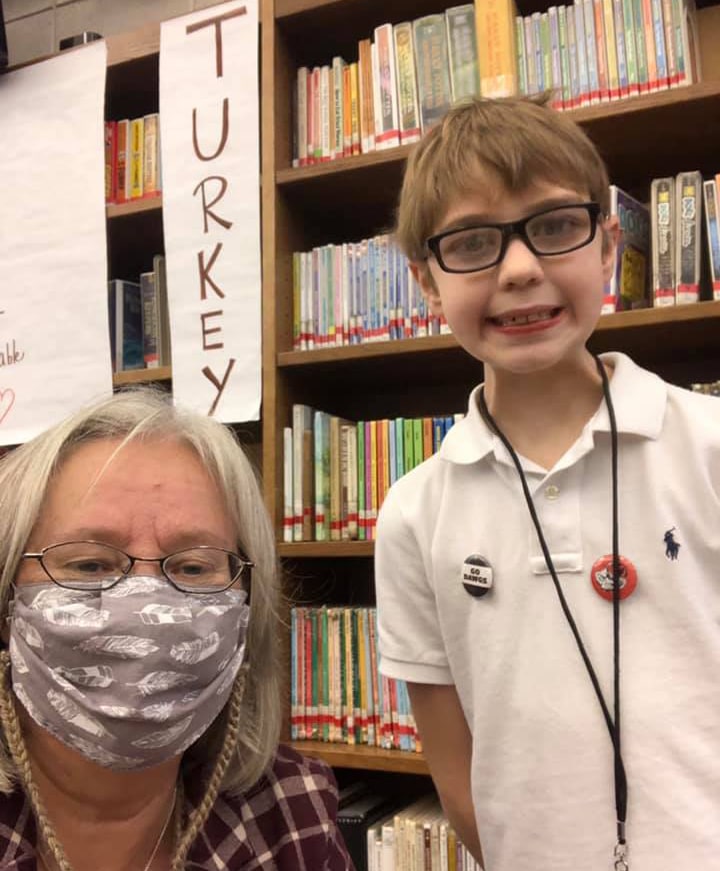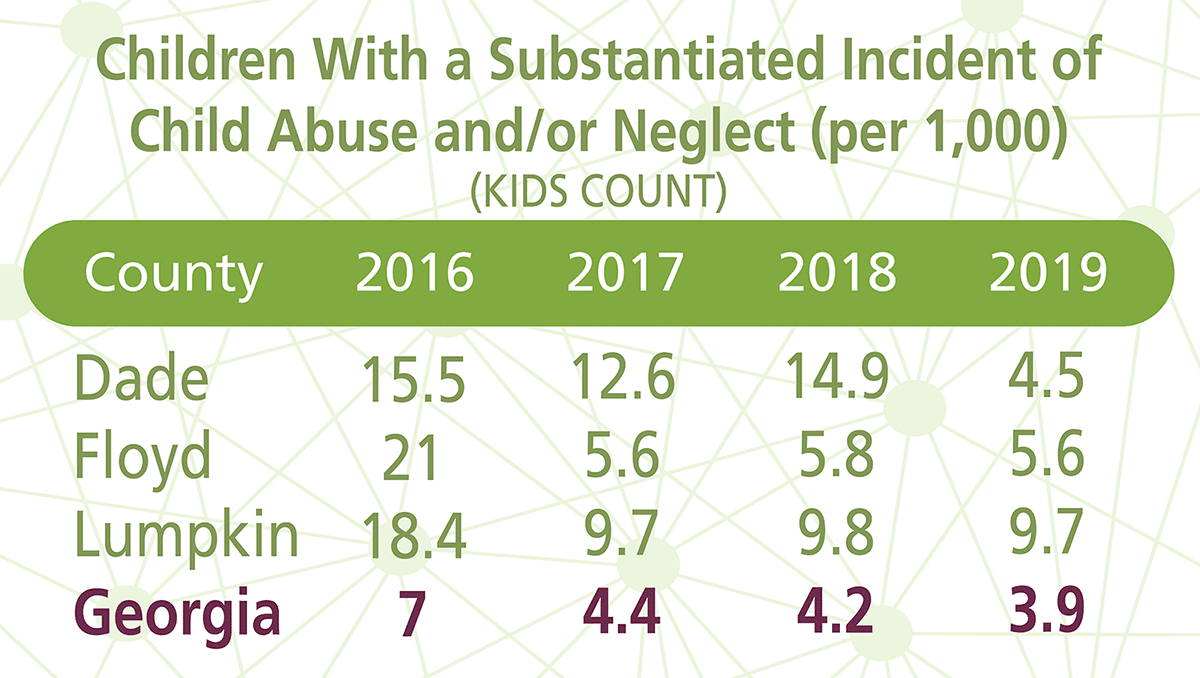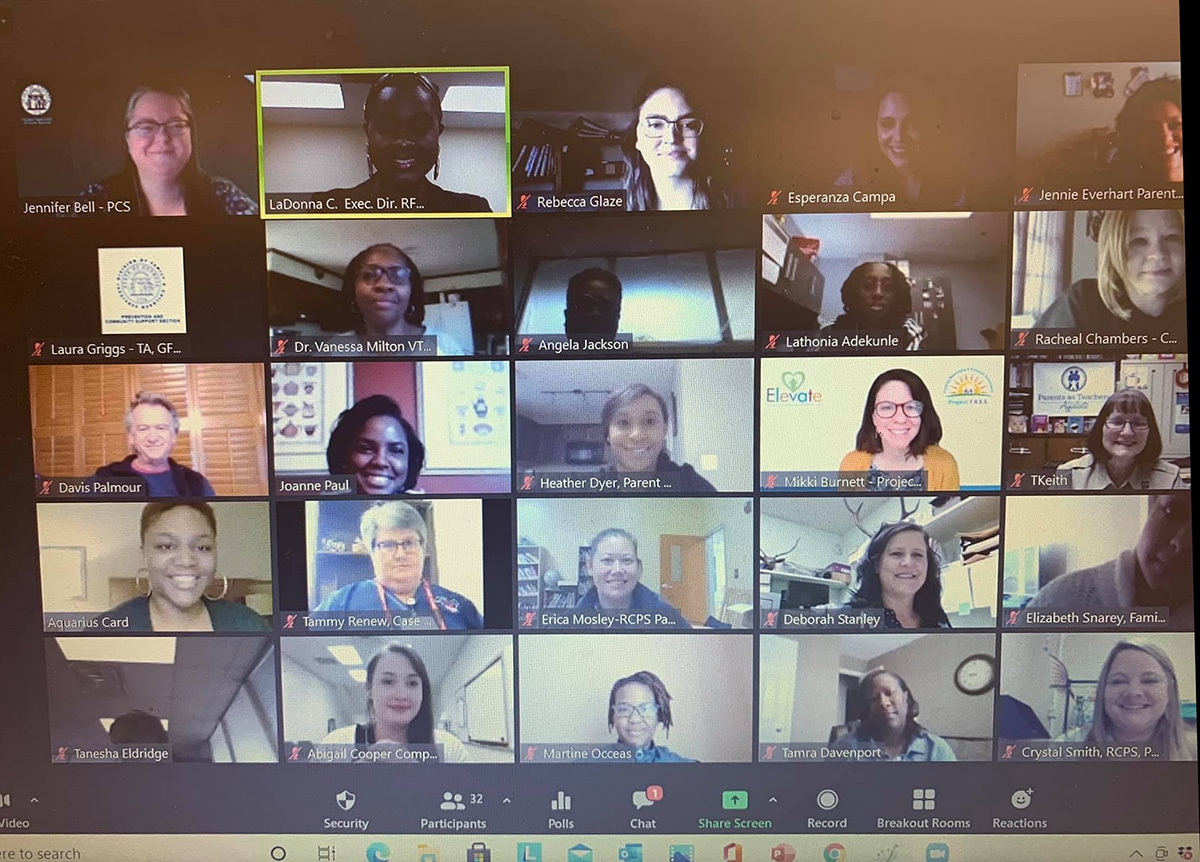Family Support Cohort Aims to Prevent Child Abuse and Neglect in Georgia
Print This Post
Despite challenging times, 54 Lumpkin Family Connection mentors spent 500 hours last year working with students.
by Diana St. Lifer
More than 9,700 victims of child abuse and neglect were confirmed in Georgia in 2019.
Contributing factors for child abuse and neglect range from financial instability and substance abuse to inadequate care—and the negative long-standing impact that results from any adverse childhood experience is significant.
Experts agree that at the root of prevention is strengthening relationships and supporting parents and the home environment, and that is at the heart of the Georgia Family Connection Partnership (GaFCP) Family Support Cohort. Dade, Lumpkin, and Floyd counties are using a socio-environmental approach to work to reduce their rates of child abuse and neglect, which are considerably higher than the rest of the state.
“Supporting families is the best way to prevent child abuse and neglect,” said Rebekah Hudgins, research and evaluation consultant for GaFCP. “The cohort work is designed to have collective impact and include county-specific strategy development as well as cohort-wide shared vision, shared measurement systems, mutually reinforcing activities, and continuous communication with the support of a local backbone organization—the Georgia Family Connection Collaborative.”
The cohort began in 2017 with funding from the Prevention and Community Support Section of the Division of Family and Children Services (DFCS) and is guided by five key strategies detailed by Centers for Disease Control’s Division of Violence Prevention:
- strengthen economic supports to families,
- change social norms to support parents and positive parenting,
- provide quality care and education early in life,
- enhance parenting skills to promote healthy child development, and
- intervene to lessen harms and prevent future risk.
“Something I realized when I came into this role in 2019 is that we have to have a community voice—our parents, our grandparents, anybody living in these areas,” said Rome Floyd County Commission in Children and Youth Executive Director LaDonna Collins. “We were doing it without them—and that was an error on our part, so that’s why we created a parent advisory committee. You need to have the voice of a parent, a grandparent, a youth at the table—and it’s important to make sure you have people at the table that actually mirror your community.”
Leaders in the three north Georgia county Collaboratives shared the Family Support Cohort’s approach at the Georgia Family Connection 2020 virtual conference in October. The session, “Building Protective Factors Within Families and Communities,” outlined the cohort’s approach through a comprehensive theory of change and its focus on equity, evaluation, and innovation.
Hudgins said the cohort hopes to influence the way in which individuals and organizations work together to develop a strategy and implement and measure changes.
“Genuine family support requires attention to local systems changes to better support parents and families of young children before they become known to the DFCS system,” she said. “This includes providing a continuum of contact and support to all families based on level of need while promoting and strengthening parental skills and assisting partners in understanding their role as part of the larger system.”
DFCS has provided more than $197,000 since 2018 and funding is expected to continue through FY23. This is a solid investment considering that the total direct cost for just one victim’s lifetime is estimated to be $226,822, according to Prevent Child Abuse Georgia. This expense includes short- and long-term health care, child welfare costs, criminal justice costs, special education costs, and productivity loss.
The Collaboratives provide yearly reports, and all three counties have seen slight reductions in child abuse and neglect as well as an increase in community awareness and community partnerships.

COVID-19 has had an impact on the cohort’s momentum. While some events were canceled, others transitioned to a virtual platform or were adjusted to follow social distancing and CDC guidelines. In some cases, resources were redirected to support at-risk families affected by the pandemic through food distribution, housing, and utility assistance.
Dade County Family Connection diverted some funding to support parents with rent and utilities and food vouchers because while the community was on lockdown to mitigate the pandemic’s spread, a tornado come through the county. “Having a strong foundation and a baseline of relationships allowed all of the voices to be heard because the need was coming from everywhere,” said Martha Baker, Dade County Family Connection coordinator.

Class selfie: Rome Floyd County Commission on Children and Youth virtually certified 40 Georgians on the Standards of Quality for Family Strengthening & Support.
The CDC reports that heightened stress, school closures, loss of income, and social isolation resulting from COVID-19 have increased the risk for child abuse and neglect. Nearly 1,770 children died of abuse and neglect in the United States in the past year.
“As we continue to navigate through COVID-19, it is even more essential that we take steps to prevent child abuse and neglect,” said Hudgins. Three additional counties—Dougherty, Webster, and Lanier—joined the Family Support Cohort in October. “These counties will work together to build comprehensive strategies using the CDC framework and Georgia’s Child Abuse and Neglect Prevention Plan to support families and reduce child abuse and neglect rates in their communities.”
Lumpkin County Family Connection Executive Director Brigette Barker understands the value of collaborating to help increase family stability and self-sufficiency. “We’ve actually had a family support strategy that we’ve worked within for 20 years,” she said. “But with the help of the cohort these past few years, we’ve worked hard to emphasize best practices and adding a lot of those empirically based components. We’ve seen some great results due to that. We couldn’t ever do it alone.”
Watch the “Building Protective Factors Within Families and Communities” session to dive into the Family Support Cohort’s structure, Outcome Map, and alignment with state plans to address child abuse and neglect:
Contact:
Bill Valladares
GaFCP Communications Director
404-739-0043
william@gafcp.org
Follow us on Twitter: @gafcpnews
Connect with us on Facebook.
